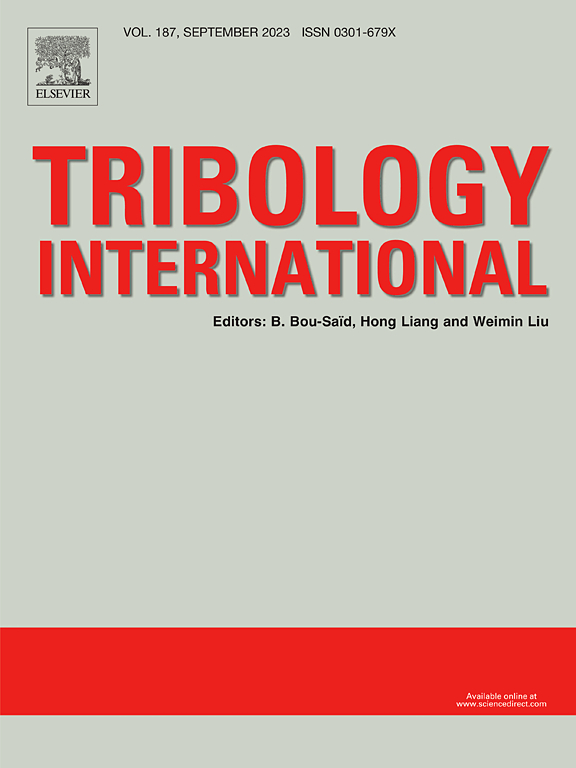Analysis of Grease Mechanical Degradation in Standard Equipment
IF 6.1
1区 工程技术
Q1 ENGINEERING, MECHANICAL
引用次数: 0
Abstract
As a grease is used in a bearing, its rheological properties may change substantially due to prolonged shear, causing it to no longer meet its application requirements. The change to grease structural integrity may be succinctly quantified by measuring the change in consistency, corresponding to shear/mechanical stability. There are only two standardized methods for measuring the mechanical stability of greases: prolonged working in a grease worker and subjecting to roller degradation in a roll stability test.
This paper provides a detailed analysis of the shear environment of these two tests and uses recently identified measurement techniques to track the degradation of two different greases over time in each test. Results are then compared to shearing in a rheometer at shear rates that are estimated to be similar. It is shown that the shearing environments within the grease worker and roll stability test can be predicted and reproduced with reasonable accuracy in a rheometer. Various time scales of mechanical stability are identified, with the standard two-hour duration of the roll stability test found to exist within a transient time scale that may not accurately reflect the long-term mechanical stability of a grease. This study demonstrates that both tools can be used to reasonably estimate the changes to mechanical properties of a grease during the churning phase of a bearing or milling process during manufacturing, though it is recommended that the duration of the standard roll stability test be extended beyond the identified transient period.
标准设备中的润滑脂机械降解分析
在轴承中使用润滑脂时,由于长时间的剪切,其流变特性可能会发生重大变化,导致其不再符合应用要求。润滑脂结构完整性的变化可以通过测量稠度的变化(与剪切/机械稳定性相对应)来简单量化。测量润滑脂机械稳定性的标准化方法只有两种:在润滑脂工人中长期工作和在轧辊稳定性测试中进行轧辊降解。本文详细分析了这两种测试的剪切环境,并使用最近确定的测量技术来跟踪两种不同润滑脂在每种测试中随时间推移的降解情况。然后将结果与在流变仪中剪切的结果进行比较,估计剪切速率相似。结果表明,润滑脂工人和辊子稳定性测试中的剪切环境可以在流变仪中进行预测和再现,准确度相当高。研究确定了机械稳定性的各种时间尺度,发现轧辊稳定性测试的标准两小时持续时间属于瞬时时间尺度,可能无法准确反映润滑脂的长期机械稳定性。这项研究表明,这两种工具都可用于合理估计轴承搅动阶段或制造过程中铣削过程中润滑脂机械性能的变化,但建议将标准轧辊稳定性测试的持续时间延长到已确定的瞬态时间段之后。
本文章由计算机程序翻译,如有差异,请以英文原文为准。
求助全文
约1分钟内获得全文
求助全文
来源期刊

Tribology International
工程技术-工程:机械
CiteScore
10.10
自引率
16.10%
发文量
627
审稿时长
35 days
期刊介绍:
Tribology is the science of rubbing surfaces and contributes to every facet of our everyday life, from live cell friction to engine lubrication and seismology. As such tribology is truly multidisciplinary and this extraordinary breadth of scientific interest is reflected in the scope of Tribology International.
Tribology International seeks to publish original research papers of the highest scientific quality to provide an archival resource for scientists from all backgrounds. Written contributions are invited reporting experimental and modelling studies both in established areas of tribology and emerging fields. Scientific topics include the physics or chemistry of tribo-surfaces, bio-tribology, surface engineering and materials, contact mechanics, nano-tribology, lubricants and hydrodynamic lubrication.
 求助内容:
求助内容: 应助结果提醒方式:
应助结果提醒方式:


